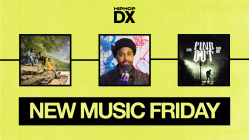Travis Scott has to appear in court in September 2024 for the final lawsuit in the Astroworld concert tragedy that killed 10 and left hundreds more injured.
Rolling Stone has confirmed that the lawsuit involving the death of 9-year-old Ezra Blount — the youngest victim of the 2021 concert — will begin before State District Judge Kristen Hawkins on September 10, 2024, which is when jury selection will begin.
In addition to suing Cactus Jack, Blount’s family is suing Live Nation — who was the concert promoter — and Apple, Inc., who streamed the live concert.
The child’s family tried to get the case heard before September, but Judge Hawkins declared it impossible to do so due to scheduling and logistical errors on behalf of all the parties.
The lawsuit filed by Blount’s family is one of ten, total, that have been filed against Travis Scott and other parties involved in the Astroworld concert tragedy.
Last week, it was announced that Blount’s case was the only one that didn’t reach a settlement agreement.
All others have been settled, confidentially — including one that was scheduled to go to trial that same week.
Last month, a judge denied the Houston rapper’s motion to be dismissed from the Astroworld lawsuits. District Judge Kristen Hawkins issued her ruling without explanation, meaning that the remaining civil suit will be permitted to move forward.
If found liable, Scott and Live Nation could be facing a court-ordered payout of billions of dollars in damages to the victims.
In March, Cactus Jack’s attorneys argued that the responsibility for the fans’ safety lies with event organizers and the venue’s staff.
“Like any other adrenaline-inducing diversion, music festivals must balance exhilaration with safety and security—but that balance is not the job of performing artists, even those involved in promoting and marketing performances,” lawyer Daniel Petrocelli wrote.
“Which only makes sense: Performing artists, even those who engage in certain promotional activities, have no inherent expertise or specialized knowledge in concert safety measures, venue security protocols, or site-design.”
He continued: “When, during festival planning, concerns arose about the risk of a stampede occurring in the festival site, the Scott defendants supported festival organizers’ efforts to eliminate that risk by agreeing to remove certain rides and other attractions at the site. Then, when the Scott defendants were told to end the show after Mr. Scott’s guest performer finished performing, they did just that—ending the show as directed.”








